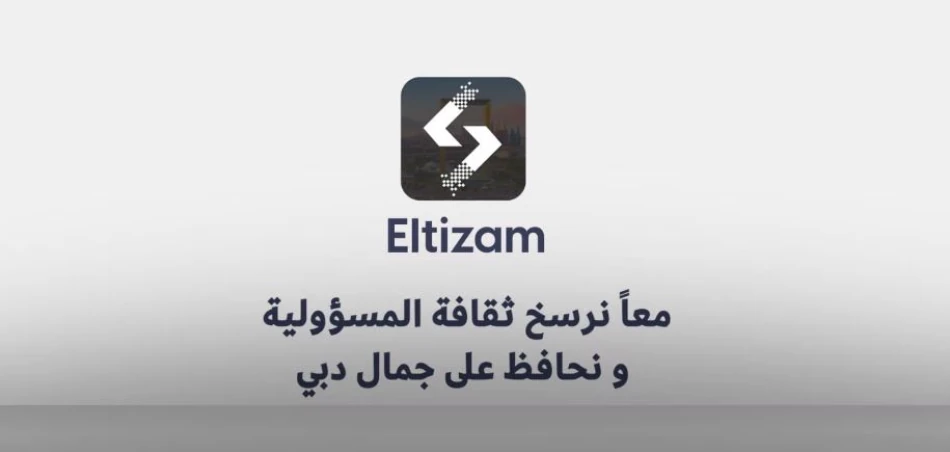
Dubai Municipality Launches "Iltizam" App to Enhance Emirate's Attractiveness and Leadership as World's Cleanest City
Dubai Launches AI-Powered App to Turn Officials Into Environmental Enforcement Officers
Dubai Municipality has unveiled "Iltizam" (Commitment), a digital application that grants select government officials judicial enforcement powers to monitor and document public cleanliness violations in real-time. The move represents a bold shift toward distributed enforcement, leveraging technology and bureaucratic authority to maintain Dubai's ambition of becoming the world's cleanest city.
Digital Enforcement Meets Urban Governance
The Iltizam app transforms participating Dubai officials into environmental enforcement officers with legal authority to issue violations for eight specific public cleanliness infractions. These range from spitting in public spaces and littering to unauthorized vehicle washing, illegal barbecuing, and failure to clean up after pets.
Users can instantly capture photographic evidence, automatically tag GPS locations, and add detailed notes—creating a comprehensive violation database that integrates directly with Dubai's judicial enforcement framework under Law No. 19 of 2024.
Beyond Traditional Municipal Oversight
Unlike conventional city enforcement that relies on dedicated inspection teams, Dubai's approach distributes monitoring responsibility across its governmental workforce. This creates a surveillance network that could dramatically increase violation detection rates while reducing enforcement costs.
The system targets violations including ocean and beach littering, unauthorized advertising placement, and improper waste disposal—issues that typically require extensive patrol coverage to monitor effectively.
Global Context: The Smart City Enforcement Trend
Dubai's initiative mirrors broader global trends toward technology-enabled urban management, but with a distinctly authoritarian efficiency approach. Singapore has long employed similar distributed monitoring systems, while Chinese cities use AI-powered surveillance for public behavior enforcement.
However, Dubai's model is unique in formally deputizing government employees as enforcement officers rather than relying purely on automated systems or dedicated police units. This hybrid approach could prove more politically palatable than pure surveillance while maintaining enforcement effectiveness.
Economic and Tourism Implications
For Dubai's economy, which depends heavily on tourism and international business, maintaining pristine public spaces directly impacts revenue streams. The emirate's "cleanest city in the world" ambition isn't merely civic pride—it's economic strategy.
Real estate values, tourism satisfaction scores, and international city rankings all correlate with urban cleanliness metrics. The app could provide measurable improvements in these areas while generating violation revenue to offset enforcement costs.
Implementation Challenges and Market Response
The success of Iltizam will likely depend on adoption rates among eligible officials and public acceptance of expanded enforcement presence. Dubai's residents, accustomed to strict public behavior standards, may welcome increased cleanliness monitoring.
For urban technology companies, Dubai's approach offers a potential export model. Cities struggling with enforcement budget constraints could adopt similar distributed monitoring systems, creating a significant market opportunity for civic technology platforms.
Measuring Success Beyond Violations
Dubai Municipality Director General Marwan Ahmed bin Ghalita emphasized that the app supports the emirate's broader smart city transformation goals. The real test will be whether increased enforcement translates into behavioral change rather than simply higher violation rates.
Early indicators of success will include reduced repeat violations in monitored areas, improved international cleanliness rankings, and positive tourism feedback scores. The integration with existing judicial frameworks suggests Dubai expects significant enforcement activity, making violation trend data a key performance metric.
This initiative positions Dubai as a testing ground for next-generation urban governance models that other ambitious cities may soon replicate.
Most Viewed News

 Sara Khaled
Sara Khaled






